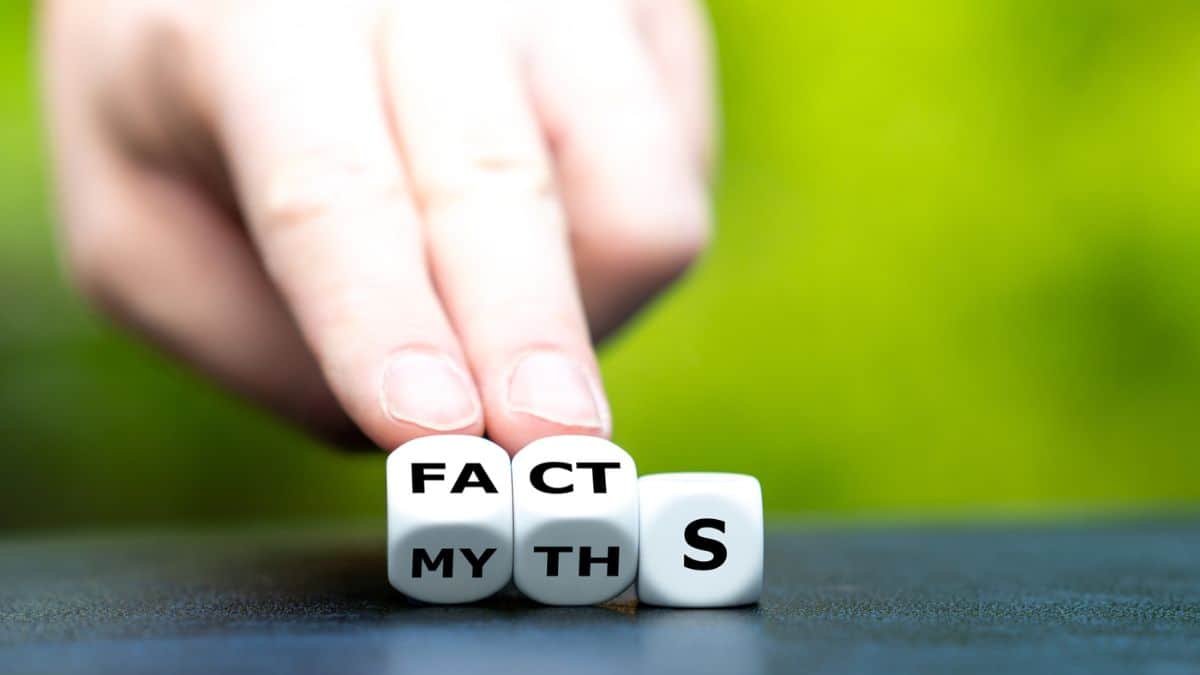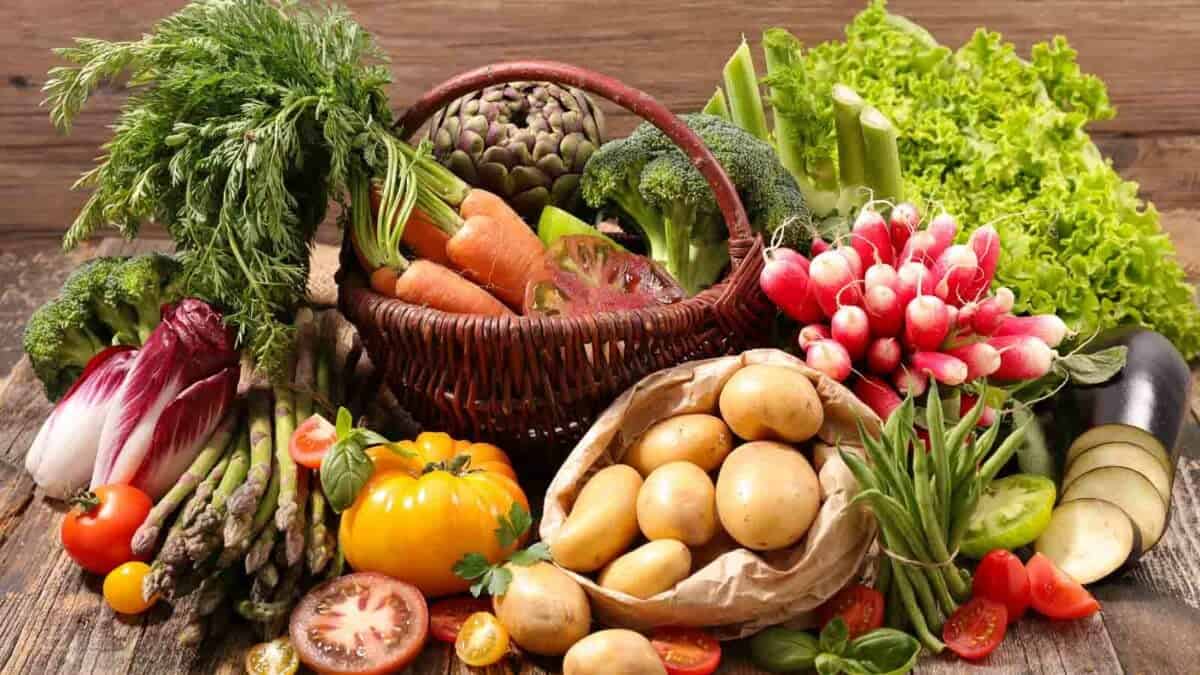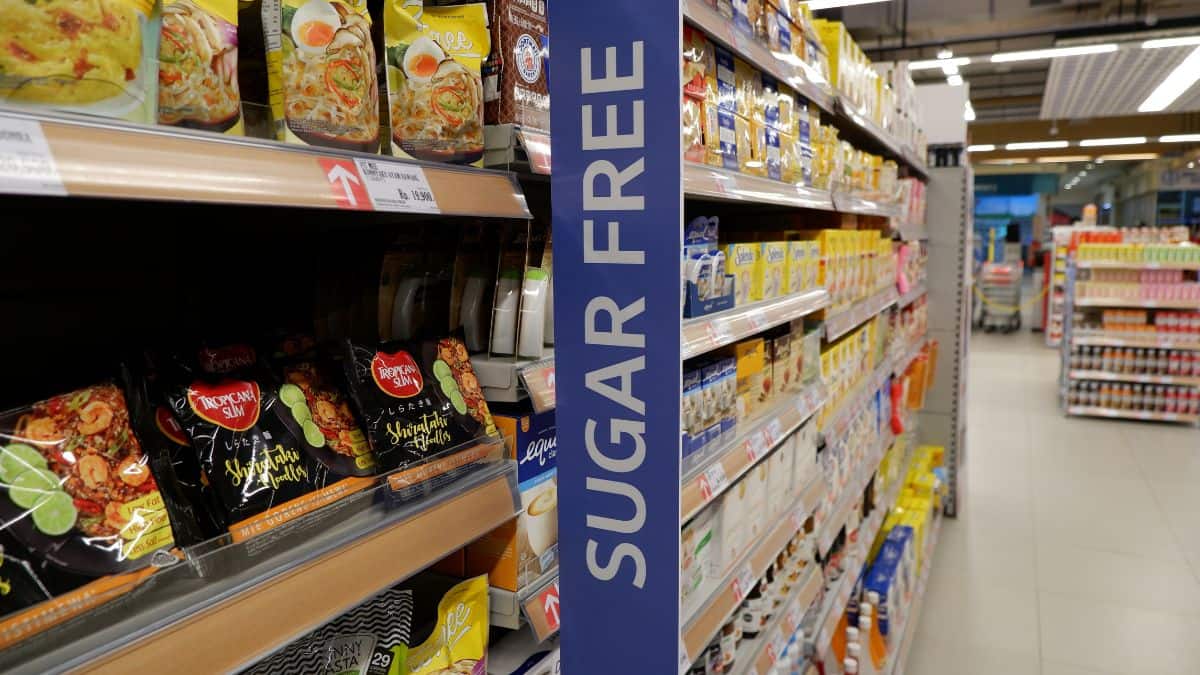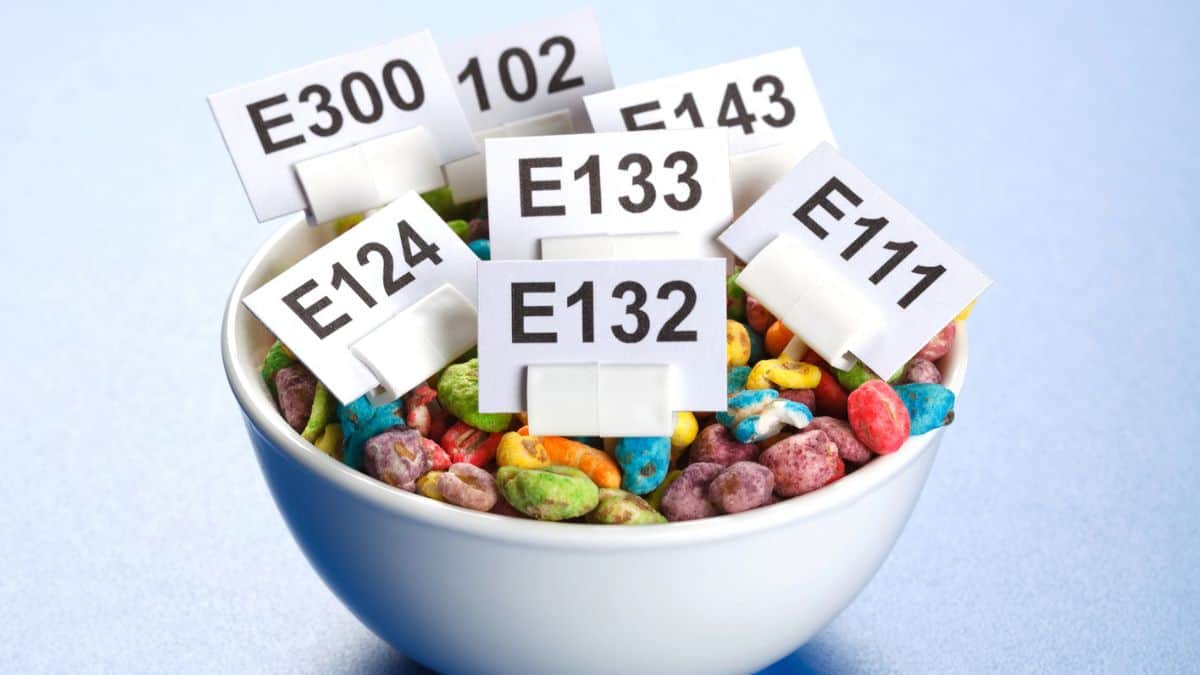Navigating the world of nutritional advice can feel like tiptoeing through a minefield of misinformation. This article clears the air, debunking popular food myths that science has proven false. We’re slicing through the old wives’ tales and marketing spin that have clouded culinary truths for years.

Margarine is healthier than butter

Though once touted as the heart-friendly alternative, margarine contains trans fats that can elevate heart disease risk, unlike natural fats in butter which, when eaten in moderation, are not harmful.
Eggs increase blood cholesterol

Contrary to past beliefs, eggs don’t significantly impact blood cholesterol for most people and are packed with nutrients, making them a breakfast champion.
Fresh vegetables are always healthier than frozen

Frozen vegetables may trump fresh ones in nutrient content as they are flash-frozen at peak ripeness, sealing in their goodness, unlike fresh veggies that often lose nutrients during transit and storage.
Fat-free foods are healthier

Fat-free products often compensate for flavor loss with added sugars or thickeners that can be worse for your health than the original fat content. Healthy fats are crucial for bodily functions, and removing them can detract from the nutritional value of foods.
A gluten-free diet is healthier

Without a diagnosed sensitivity to gluten, nixing it from your diet offers no proven health benefits; it’s completely healthy for most people.
Carbohydrates make you fat

It’s not carbs per se, but the type and quantity that matter. Whole grains and fiber-rich carbs can aid in weight management and are part of a balanced diet.
You need to drink 8 glasses of water a day

Everyone’s hydration needs are different, influenced by lifestyle and body needs. Listen to your thirst; it’s a reliable indicator of when you need water.
Microwave cooking depletes nutrients

Microwaving food can actually preserve more nutrients than some traditional cooking methods like boiling, due to shorter cooking times and reduced water use.
Avoiding dairy helps you lose weight

Dairy isn’t a diet demon and doesn’t contribute to weight gain on its own; incorporating low or non-fat dairy can support weight management effectively.
Skipping meals helps you lose weight

Missing meals can backfire, leading to increased hunger and potential weight gain; regular meals help regulate blood sugar and manage appetite.
Sugar-free products are healthier

Sugar-free doesn’t always mean healthier. These products often contain artificial sweeteners or other additives that can have their own health drawbacks. It’s best to enjoy the natural sweetness of fruits or modest amounts of regular sugar.
10 Controversial Food Ingredients Used In America That Are Banned Globally

Around the globe, countries take varied approaches to food safety, setting their own rules on which ingredients and production methods are deemed acceptable. What’s routine in the U.S. food industry often faces stricter scrutiny abroad. With the U.S. grappling with high rates of chronic illnesses and food-related disorders, it begs the question: could certain widely-used, yet overseas-banned, additives be contributing to America’s public health challenges?
In the States, the Food and Drug Administration (FDA) and the Food Safety and Inspection Service (FSIS) oversee food safety, adopting a “Generally Recognized As Safe” (GRAS) stance. This means additives are presumed safe based on expert consensus or historical use, rather than extensive new testing. In contrast, regulatory bodies in places like the European Union demand rigorous safety demonstrations before any new food additive graces supermarket shelves. This fundamental difference in regulatory philosophy may explain why some products available in the U.S. are forbidden elsewhere.
See Them Here: 10 Controversial Food Ingredients Used In America That Are Banned Globally
10 Foods That Deceive You Into Thinking They’re Healthy

It’s easy to be fooled by foods that wear a healthy halo, especially when we’re trying to make better eating choices. Here’s the truth behind 10 foods that might seem like they’re on your side in the health department, but actually aren’t. Learn what makes them less than ideal and what to opt for in their place.
See Them Here: 10 Foods That Deceive You Into Thinking They’re Healthy
11 Cities That Promise The Best Cup Of Coffee You’ve Ever Had

If you’re a coffee aficionado, this one’s for you. We’ve compiled a list of cities renowned for serving up the best coffee experiences worldwide. From the historic coffee houses of Vienna to the cutting-edge brews of Melbourne, these destinations are a haven for those who cherish their caffeine.
See Them Here: 11 Cities That Promise The Best Cup Of Coffee You’ve Ever Had
Images provided by Depositphotos.
Gina Matsoukas is an AP syndicated writer. She is the founder, photographer and recipe developer of Running to the Kitchen — a food website focused on providing healthy, wholesome recipes using fresh and seasonal ingredients. Her work has been featured in numerous media outlets both digital and print, including MSN, Huffington post, Buzzfeed, Women’s Health and Food Network.








